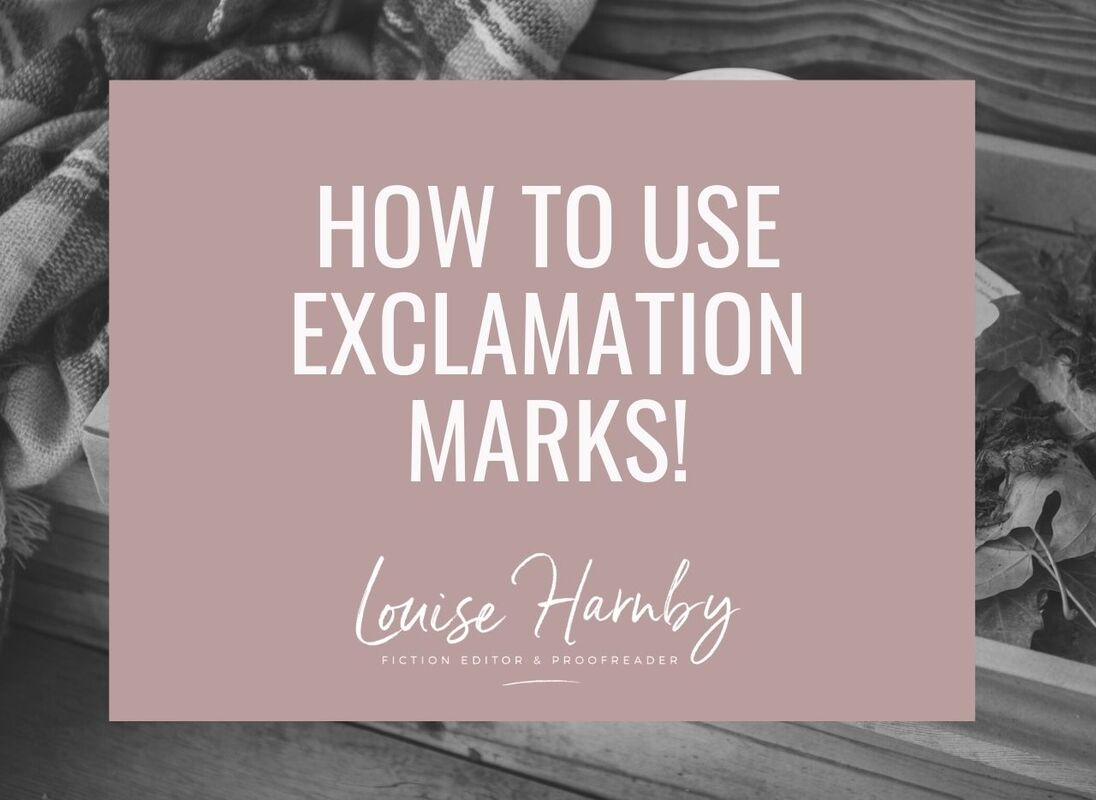|
In this episode of The Editing Podcast, Denise and Louise discuss how to use exclamation marks, and why more than one is too many.
Click to listen to Season 4, Episode 2
Listen to find out more about:
Editing bites
Music credit ‘Vivacity’ Kevin MacLeod (incompetech.com). Licensed under Creative Commons: By Attribution 3.0 License.
Louise Harnby is a line editor, copyeditor and proofreader who specializes in working with crime, mystery, suspense and thriller writers.
She is an Advanced Professional Member of the Chartered Institute of Editing and Proofreading (CIEP), a member of ACES, a Partner Member of The Alliance of Independent Authors (ALLi), and co-hosts The Editing Podcast. Visit her business website at Louise Harnby | Fiction Editor & Proofreader, say hello on Twitter at @LouiseHarnby, connect via Facebook and LinkedIn, and check out her books and courses.
7 Comments
28/4/2020 07:34:35 pm
GREAT SHOW, Ladies!!! I learned a LOT!!!! :-)
Reply
Louise Harnby
29/4/2020 04:50:20 pm
Thanks, Jim! Oh, go on then. Have a few more!!!!!
Reply
Lindsey Russell
9/5/2020 11:40:16 pm
'What' - in dialogue is the one I find difficult. Question mark or exclamation mark?
Reply
Louise Harnby
10/5/2020 12:49:43 am
I recommend a question mark, but use italic for the mark and the word 'what'. Don't, however, italicize the quote marks. The italic indicates the emphasis while the question mark ensures the reader sounds out the dialogue with the appropriate interrogation.
Reply
Lindsey Russell
10/5/2020 12:30:23 pm
Thanks Louise, especially as you picked up my omission of someone saying it in exasperation :)
Margot
10/5/2020 07:16:00 pm
My question relates to the best use of initials to refer to an organization or office in a mystery novel. In non-fiction, I am accustomed to writing out the name of the organization in full, followed by its initials in brackets. After that I can just refer to the initials. In fiction, however, especially in dialogue, that doesn't seem to work. Following, for example, is an excerpt from a scene in my novel."The Premier’s Office had issued the usual “key messages,” one-liners, which no doubt had been vetted by everyone at the disposal of the powerful PO—lawyers, senior policy analysts and communications officers...." I don't want to keep using the phrase "The Premier's Office" as this will come up frequently, but how do I introduce the abbreviation "PO" so the reader knows what I'm talking about. And in conversation, its use might be first made by the speaker referring only to the initials but the reader may not know what is being referred to.
Reply
Louise Harnby
11/5/2020 08:37:50 pm
I think your readers will work it out as long as you deal with it at first mention. So this is made up but you get the picture:
Reply
Leave a Reply. |
BLOG ALERTSIf you'd like me to email you when a new blog post is available, sign up for blog alerts!
TESTIMONIALSDare Rogers'Louise uses her expertise to hone a story until it's razor sharp, while still allowing the author’s voice to remain dominant.'Jeff Carson'I wholeheartedly recommend her services ... Just don’t hire her when I need her.'J B Turner'Sincere thanks for a beautiful and elegant piece of work. First class.'Ayshe Gemedzhy'What makes her stand out and shine is her ability to immerse herself in your story.'Salt Publishing'A million thanks – your mark-up is perfect, as always.'CATEGORIES
All
ARCHIVES
July 2024
|
|
|
|

















 RSS Feed
RSS Feed





